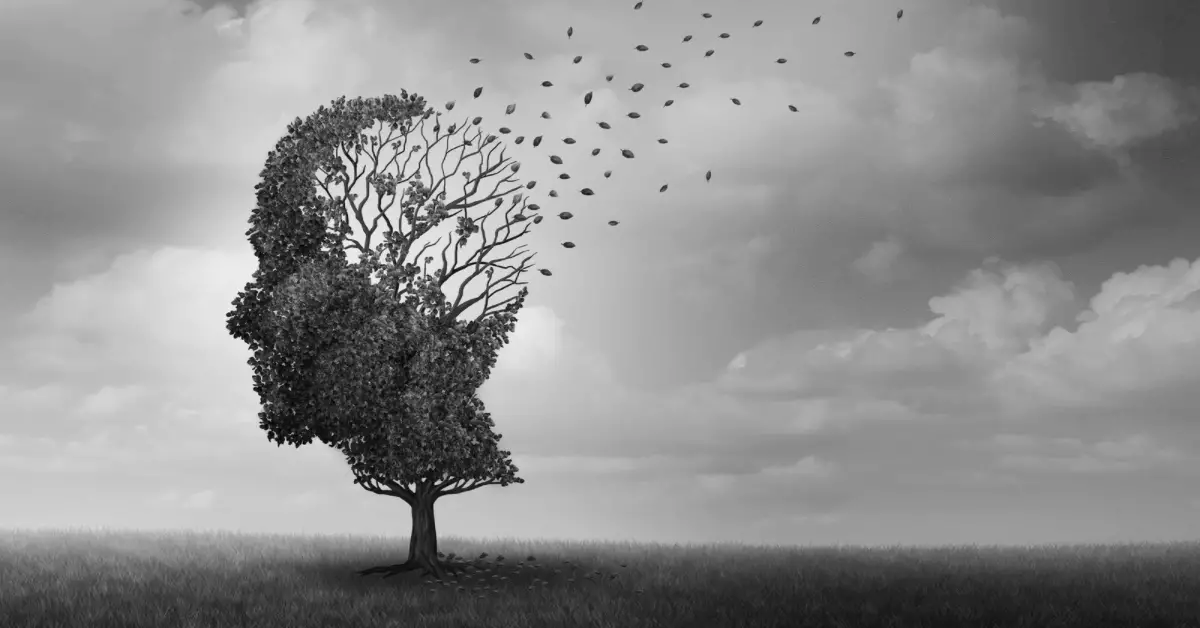What is Alzheimer’s Disease?
- Alzheimer’s disease is usually triggered due to the overproduction of amyloid peptides. NFTs (Neurofibrillary tangles usually present within cells), cells that start gathering in the form of plaques known as amyloid plaques and groups of highly soluble proteins called tau proteins (created outside of the cells).
- Collectively results in loss of neurons as well as causes disturbance in neuronal connections and functions in brain due to increased toxicity.
- A brain developing Alzheimer becomes prone to atrophy (shrinking of the brain). Disease tends to shrink the brain of a suffering person and eventually takes away his skills to carry out the simplest day-to-day tasks.
- People with Alzheimer disease might develop MCI (Mild Cognitive Impairment) which causes memory lapses. It occurs with imperceptible changes in oneself.
- These mild changes won’t affect a person’s mind to the extent which worsens their behaviour.
- An important factor which we need to understand is that it is not necessary that MCI in a patient is always developed due to Alzheimer’s disease, to identify it, one must seek a professional’s advice or judgement to make sure whether MCI in a person is because of Alzheimer or it is due to some other disease.
- Older people with an age number of 60 and onwards, are at higher risk of developing this disease than younger ones. Alzheimer may initially start developing in a person with an age number of 40 to 45 years with imperceptible symptoms.
- The symptoms of Alzheimer’s do not just appear immediately like a regular disease. According to experts, the symptoms of Alzheimer might get your attention after 5 to 10 years of its development.
- One of the major causes of this disease (Alzheimer) explained by the doctors is the lifestyle of an individual, the environmental factors or it may even be triggered by genetic history in an individual’s family.
- If you had dealt with an Alzheimer patient in your family then there is a chance that you might develop it as well but not for sure because there is only one percent chance that a person might develop it due to specific genetics.
- Alzheimer Disease leads you to death. This is ranked as number three on the list of deadliest diseases in the world.
- The maximum lifespan of a person dealing with Alzheimer’s disease is nine to ten years.
- All of the above-mentioned symptoms vary from person to person. It is not necessary to consider any single symptom as a sign of disease on your own; neither should it be ignored.
- In any of the above cases, one must seek help from a medical professional for correct judgments rather than guessing any symptoms by yourselves.
What are the four stages of Alzheimer?
- The four stages of Alzheimer’s disease include; Preclinical Alzheimer’s disease, Mild dementia, Moderate dementia, and Severe dementia due to Alzheimer disease.
- Preclinical Alzheimer Disease:
- The very early stage of Alzheimer is often mistaken for ageing or stress because a person does not develop severe behavioural changes at this stage, however, it is an initial stage where brain cells actually start dying.
- To diagnose preclinical alzheimer, a person requires some new imaging technologies to notice changes in brain cells as well as to measure the quantity of amyloid beta (A, responsible for neural growth and reparations).
- Mild Dementia due to Alzheimer Disease:
- Mild Dementia is a diagnostic stage of Alzheimer as it appears with clear symptoms in a person.
- A person at this stage often finds himself disoriented even at most familiar locations. He misplaces things and forgets about them.
- This stage (Mild dementia) removes the ability of taking out minor tasks (problem solving, sound judgement etc), remembering conversations and recent events.
- Patients experience severe personality changes such as; demotivation towards their responsibilities or unbearable anger and mood swings.
- Moderate Dementia due to Alzheimer Disease:
- At this stage, alzheimer patients become more reliant on others’ help. It becomes hard for them to even remember the day of the week, season of the year, their familiar locations, their family and close friends as well.
- They become more forgetful with their personal details such as; phone number, address, and names of their dear ones.
- Such patients repeat their past stories a lot or may even make up stories on their own based on past traumas or just to fill up their memory gaps.
- Few specific changes in their behaviour include irrelevant or non-existent suspicions such as; caregivers are their enemies or they are stealing something from them.
- They might start experiencing hallucinations or doubting their spouses as if they are cheating on them regardless of reality.
- Severe Dementia due to Alzheimer Disease:
- This is the final and most brutal stage in which disease just overtakes the entire human brain. It completely declines brain functioning as well as physical movements.
- It leaves the person unable to walk, talk or hold onto things or even their heads, without any assistance.
- It just slowly and gradually freezes muscles and the person is left abnormal by the final stage of Alzheimer’s disease.
- The coherent communication also gets declined and the patient can no longer communicate in a way that makes sense to others or could easily be understood.
Is there a cure for Alzheimer’s Disease?
- Currently, it is hard to say if there is any certified cure to this disease or not, however, it is good practice to change your day-to-day habits with healthy habits to prevent it.
- It will be a good idea to pay a visit to medical centres where they provide you with trained caretakers and also psychosocial interventions to replace your undesirable behaviours with more desirable behaviour in case you have developed Alzheimer’s Disease.
🔬 Subscribe to SciMail
Get the latest science discoveries straight to your inbox!


Leave a Reply